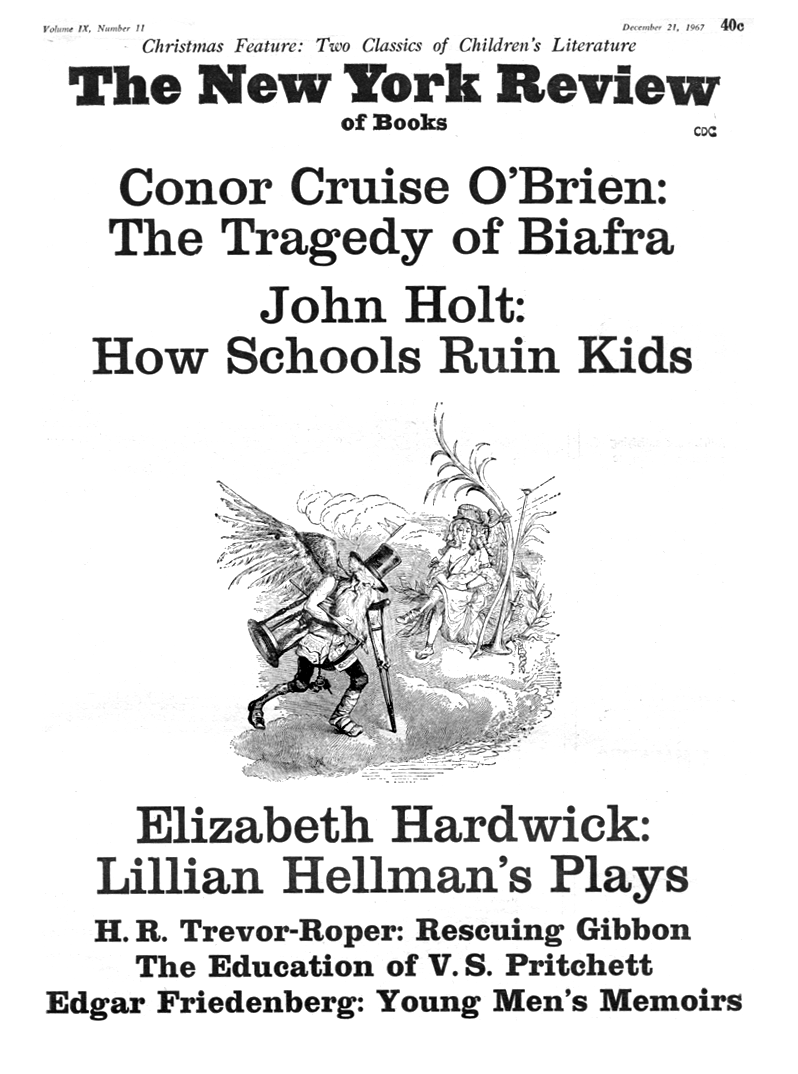In response to:
On the Draft from the April 6, 1967 issue
To the Editors:
Some months ago The New York Review carried a piece by Paul Lauter, Florence Howe, and myself, “On the Draft.” One of the points we tried to make was that the Selective Service System has arrogated to itself considerable power to determine the career choices of millions of young men. As the now notorious Selective Service document, Channeling, so bluntly puts it. “The club of induction has been used to drive out of areas considered to be less important to the areas of greater importance in which deferments were given, the individuals who did not or could not participate in activities which were considered essential to the defense of the nation.”
Out in California, a young Catholic co has been moved to undertake a direct court test of these activities of the Selective Service System. Vincent O’Connor, who happens to be the son of a conservative San Francisco Superior Court judge, has refused to accept Selective Service orders to report for the usual tasks assigned to CO’s. When inducted, Vincent was working in Arkansas as a civil rights organizer. He notified Selective Service this Spring that he would ignore an order to report to the Los Angeles Charities Department to serve as a hospital orderly. On April 22, he was arrested in Arkansas and brought to San Francisco by Federal marshals. His case is now pending trial.
The basis for Vincent O’Connor’s refusal to accept conventional alternative service is an argument that Selective Service is not empowered to control the civilian manpower pool, to direct the career choices of civilians, or to order civilians to perform certain kinds of work. The brief for his case, prepared by Berkeley attorney Peter Franck, challenges the entire concept of “channeling” on a variety of constitutional grounds. In refusing to appear for induction, Vincent declared that he felt that his “vocation is not to serve the state, but the needs of people in Arkansas for peace, economic democracy and brotherhood.”
Vincent’s action represents a unique form of draft resistance. He has decided to face jail, even though he could have avoided the issue by accepting his status as a conscientious objector. His case offers a dramatic opportunity for publicizing the totalitarian character of conscription and its effects on the entire fabric of American life. Further information can be obtained from the O’Connor Freedom Fund, 584 Page Street, San Francisco, California, 94117. Funds are very badly needed to defray legal expenses, and may be sent to that address.
Richard Flacks
Department of Sociology
University of Chicago
This Issue
December 21, 1967


